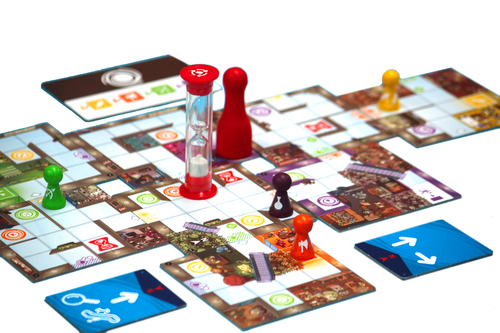Learning rules through play: Magic Maze and board game tutorials

Magic Maze is designed for players to learn the game, not just to play the game. The Initiation campaign feels like a natural part of the Magic Maze world, rather than an add-on that you play until you are ‘good enough’ for the real game.
Read more »Accidental Othering: A Road Paved with Good Intentions

Maybe you’re an endlessly cool and accepted person who is welcome, invited, and encouraged into any room. In which case, lucky you. But sadly, most of society doesn’t function that way. The accepted ‘norms’ of the world we live in – one that is binary-coded, heteronormative, and cisnormative – mean that most queer people know exactly how it feels to be the kid with the token invite, and to always feel like they are slightly on the outside.
Read more »Breaking Ice Not People: How Icebreakers Need To Be More Accessible And Inclusive

Think back to the icebreaker games you’ve been roped into over the course of your life. We’ve all been there: whether at summer camp, workplace training, or the first day of insert-educational-setting-here. And each of these icebreakers was probably much the same.
Read more »Content Warning: Content Warnings, Why They Matter, and How To Do Them Well

Content warnings need to be better. You need to actually say what you’re warning for, rather than just saying ‘content warning’. I mean, I’m grateful you’ve told me there’s content in whatever you’re showing me, but I probably need to know a little bit more before I can tell whether I’m ready to engage with it or not.
Read more »Why Do Screen Funding Organisations Care About Diversity?

While not a strict funding requirement, many selection committees find it positive if there are Indigenous team members involved in production. Others have an eye to employing queer staff. Given that the monies for funding videogame projects in this manner typically come from state governments or NGOs, it is interesting to examine why this representation of different groups occurs.
Read more »